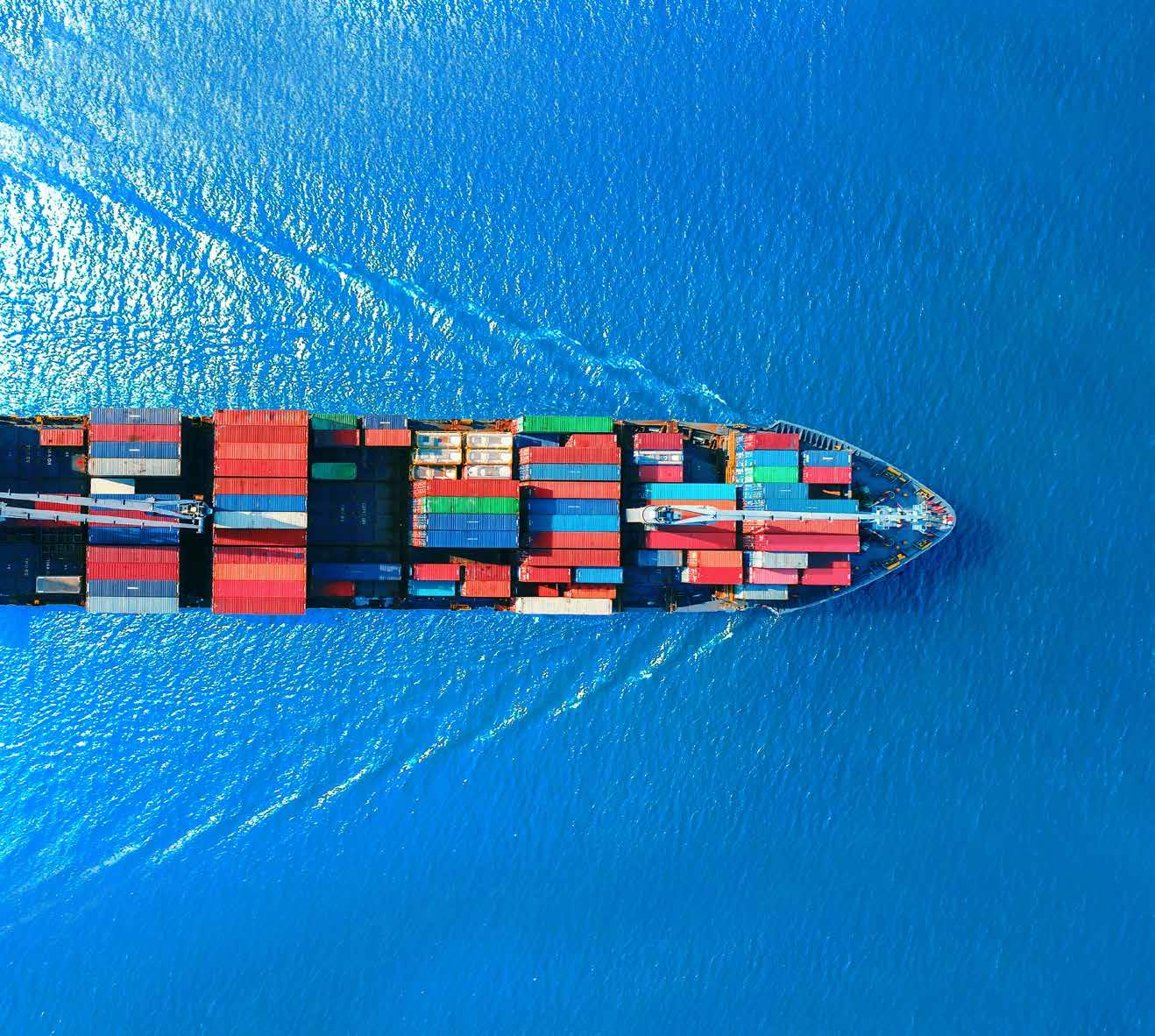











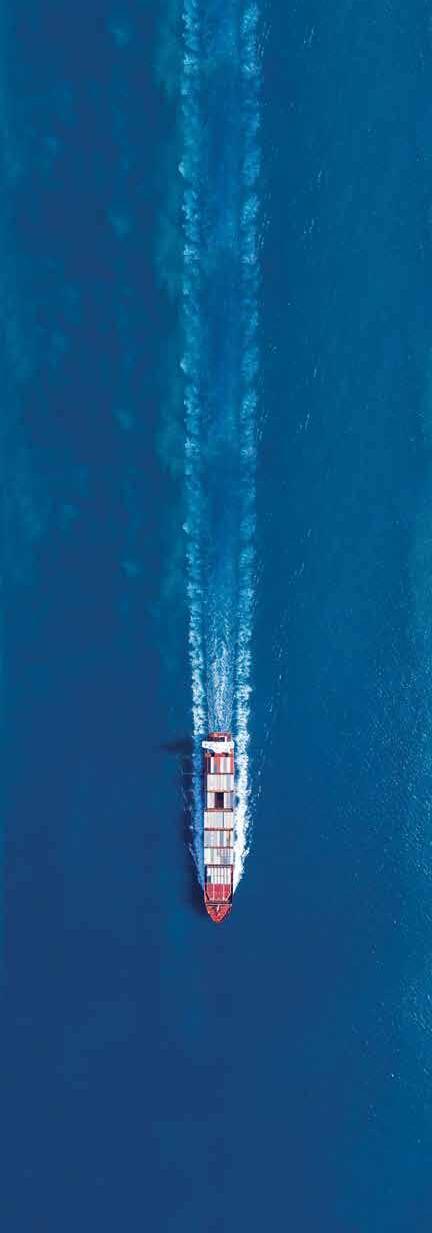
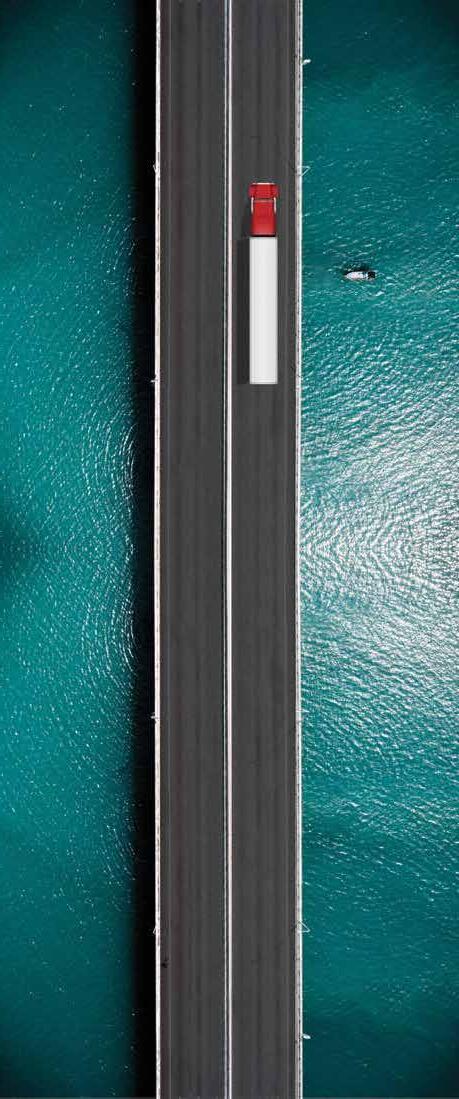
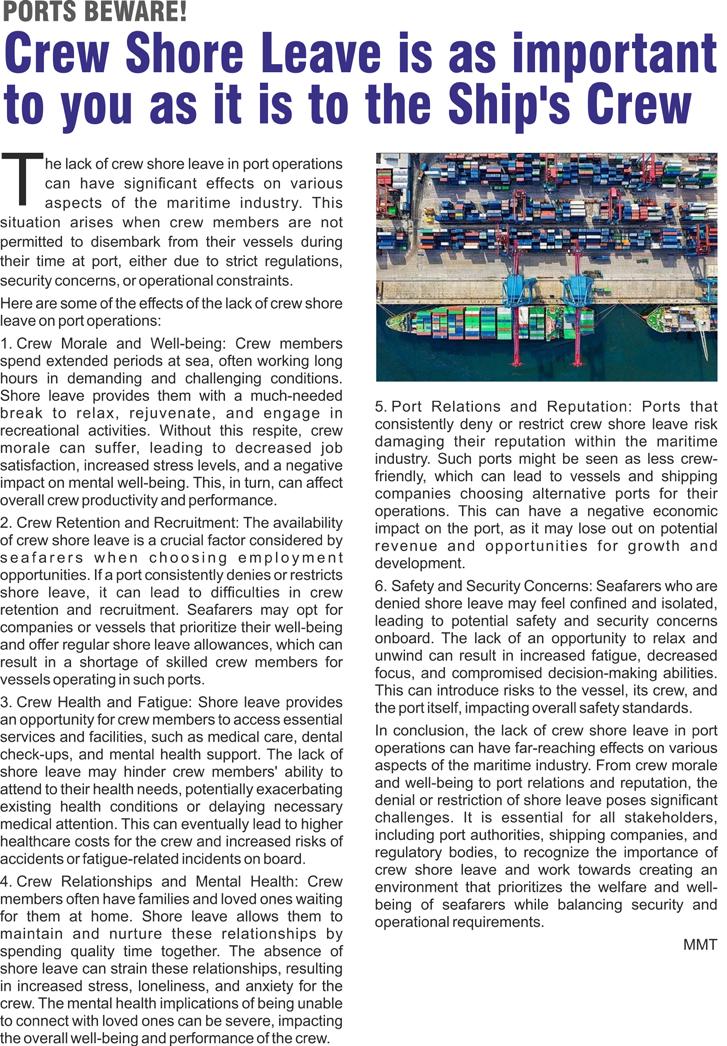
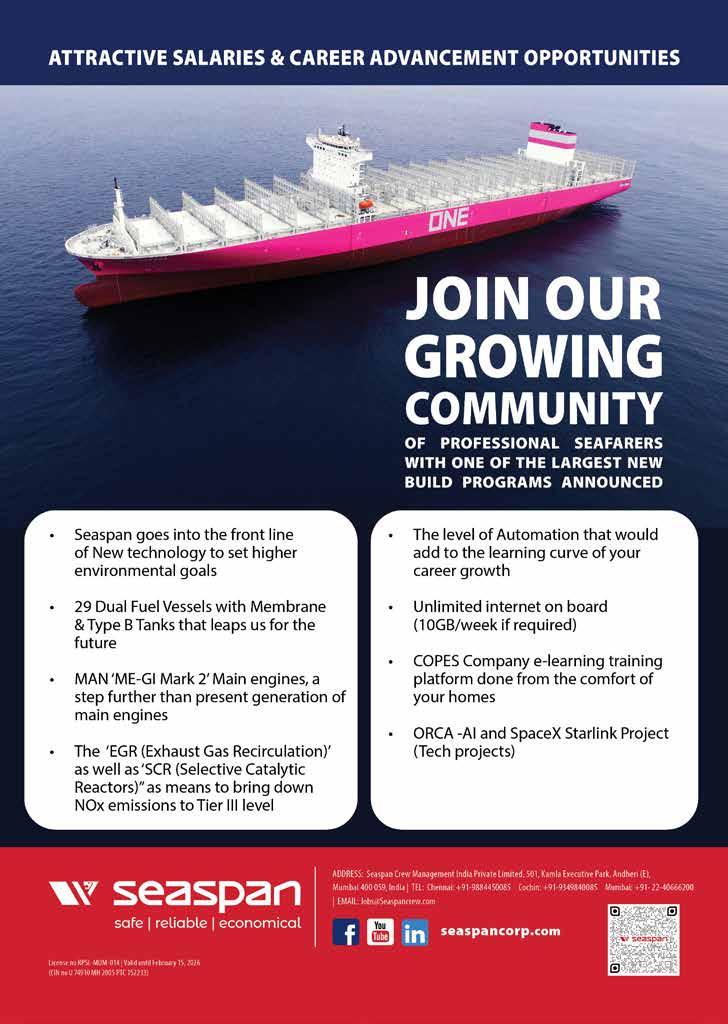

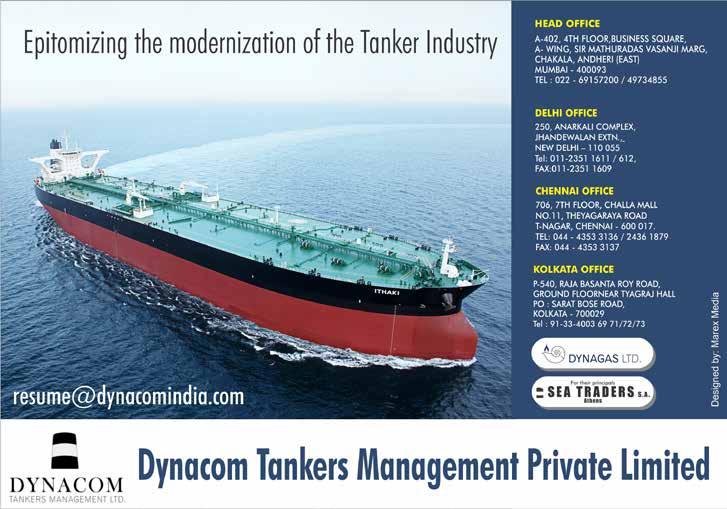
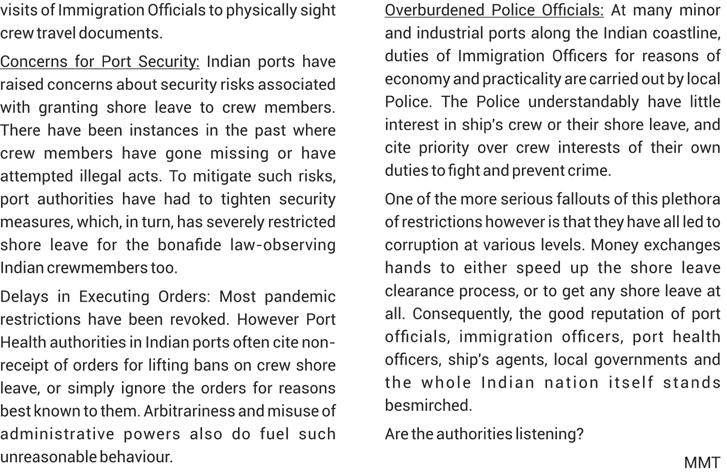
The evolution of ships’ lifting gear has undergone significant changes over time, from ancient civilizations to modern seafaring. Here are some key milestones in its evolution:
technology revolutionized the maritime industry, leading to the development of steam-powered winches and cranes. These cranes were capable of handling larger and heavier loads, making loading and unloading cargo more efficient.
Modern Era: With the introduction of electricity and hydraulics in the 19th and 20th centuries, ships’ lifting gear underwent further evolution. Electrically powered cranes became common, making lifting operations more automated and precise. Hydraulic systems, with their ability to provide high-pressure force, also became widely used, allowing for stronger and more efficient lifting mechanisms.
Ancient Civilizations: In ancient times, manual labour was predominantly used for lifting heavy objects aboard ships. Workers used ropes, pulleys, and simple hoists to raise and lower cargo. The Egyptian civilization is known to have used ramps and sledges to load heavy objects onto vessels.
Medieval Era: During the medieval period, cranes began to emerge as a means of lifting objects onto ships. These cranes consisted of a horizontal boom, known as a jib, with ropes and pulleys to lift and move cargo. These early cranes were often constructed using wooden frameworks.
Industrial Revolution: The advent of the Industrial Revolution in the 18th century brought significant advancements in ships’ lifting gear. Steam power

Containerization: The invention of shipping containers in the mid-20th century brought about a dramatic change in ships’ lifting gear. Container ships were specifically designed to accommodate standardized shipping containers, which could be easily loaded and unloaded using specialized gantry cranes located at ports. These gantry cranes, with their long horizontal booms and high lifting capacities, revolutionized cargo handling and made global trade more efficient.
Automation and Robotics: In recent years, there has been a growing trend towards automation and robotics in ships’ lifting gear. Automated cranes and robotic systems are being developed and implemented to further streamline cargo handling operations. These technologies offer increased precision, speed, and safety, reducing dependency on manual labour.
The evolution of ships’ lifting gear has witnessed a transition from manual labour to mechanized and automated systems, leading to improved efficiency, safety, and handling capabilities.
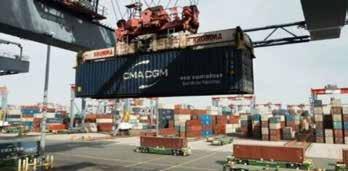
As President of, perhaps, the largest collective of workers in our Ports, I have a unique ringside view of the travails of an industry, deeply marginalised by policies, rules and acts.
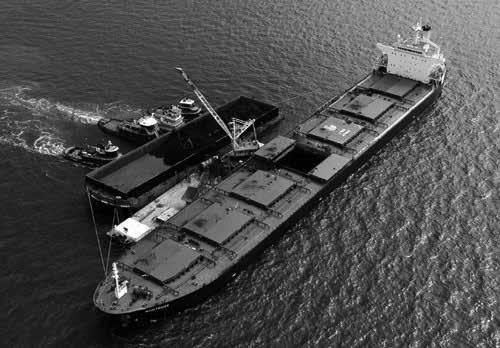
I have spent 10 years as a Trustee on the Boards of Visakhapatnam & Chennai Port Trusts and 2 years as a member of the National Shipping Board. I was also a member of the Dock Safety Committee of DGFASLI and these positions and my 35 years of experience, has me convinced that our work is just beginning.
COVID exposed a complete lack of disaster management in our Ports. As per the Act, the NDMA is responsible for “laying down the policies, plans and guidelines for disaster management for ensuring timely and effective response to disaster”.
Let it be known that if 50,000 of us decided to stay home during the lockdowns, our country would have been on her knees. We responded, rose to the occasion, kept the ships working 24 x 7, with nary a thought for our own safety, oftentimes been beaten by the police for allegedly violating curfew, even with permissions and special passes in our hands. With guest workers and staff returning to their homes for safety, on board and yard operations for bulk and breakbulk cargoes were badly affected, leading to increased turnaround times of ships and railway rake and port storage demurrages. Our pleas to declare a Force Majeure situation, post the 2nd wave, which would have prevented penalties on our failure to adhere to contractual obligations, have fallen on deaf ears.
Post the 1st lockdown, despite the Ministry’s orders, no Port refunded excess charge, demurrages or penalties. This prompted our member from Tuticorin to approach the Madurai
bench of the Madras High Court by a Writ 6818 & 6217 of 2020. The Honourable Justice presiding took cognizance and directed the Ministry to decide in 6 weeks. The Ministry directed the DG Shipping’s office to meet with the petitioners which was done on 12.01.2021 and the verdict was that since MHA had lifted the lockdown on 25.03.2020, there was no cause for any remission of charges. This order is patently bad in law and has been challenged by the respondents. As President of FAS, I took part in all these deliberations, and I once again urge the authorities to make decisions supporting the trade.
Notwithstanding these setbacks, we continue to toil, representing the primary and front-end business development stakeholders of all Indian Ports. We are disturbed to see notifications from the Ports, seeking to increase tariffs, due to indexation by merely stating that an increase in warranted due to having achieved performance standards in the previous year. The Nation is only just recovering after the devastating effects of COVID which caused severe economic hardships. The people of India are looking towards the Government for bail out packages and business friendly initiatives. With every increase, handling costs go up by INR 5-25 PMT. Every increase push Major Port cargo into the hands of the private Ports. Vessel Related charges and estate rentals also go up, making our Ports unviable, resulting in Port lands lying vacant and pushing up unrecoverable expenditure on those who were compelled to rent plots, office/gear storage space. Stevedores, unlike other intermediaries like Agents & Customs brokers, have all in contracts and CANNOT pass on the increase to the trade. It is necessary for Port managements to convey reliability of service by providing tariff stability, without an increase of any tariff whatsoever, whether by indexation or otherwise, for the next 24 months. All tariff increases must be suspended immediately and there must be a roll back of any recent tariff increases. This will give confidence to industry that our Ports means business and are willing to serve as a catalyst to trade.
If, as sought by IPPTA, the Government, acquiesces to their request to permit BOOT operators to handle other cargoes, this can
only be at the cost of stevedores, who have also invested substantial time and money in equipment and manpower, to handle bulk and Break-bulk cargoes.
Every tender, that is put out by the Major Ports has specific overriding clauses that state the Concessioning Authority does not guarantee traffic or volumes and that every bidder must undertake a business study and evaluate the risks involved. The downturn due to COVID 19 or any policy shift of GOI cannot be considered as “material adverse effects” or even “conditions precedent”.
This stance, taken by IPPTA is not legally tenable unlike Article 21 of our Constitution, that guarantees a right to livelihood, as decreed by Hon Justice, DA Desai in his judgement in Board of Trustees of the Port of Bombay v. Dilipkumar Raghavendranath Nandkarni, when he held “the right to life” guaranteed by Article 21 includes “the right to livelihood”.
While we do empathize with the members of IPPTA for their travails, the answer to their issues, does not lie in permitting them to handle other cargoes but in an effective and complete overhaul of the MCA, which though undertaken, remains incomplete.
With projects greater than Rs 1000 crores going to the PPPAC, it is recommended that the limit for a Port Board to approve, be increased to Rs 500 crores and projects with higher value be sent to the SFC, where there is a representative of the Ministry of Finance, in any case. This will speed up the process (reduce time & cost overruns) of setting up smaller Port/Port based projects, post COVID 19, where GOI is seeking to attract many investors, currently operating in China.
We are happy that the problems of existing concession agreements are being addressed and rectified by the Conciliation and Settlement Committee. For new projects and for existing ones, a midway reset Clause, permissible and applicable by law, must be introduced.
Private terminal operators at major ports should be given a level playing field with the private operators at minor ports, particularly in setting rates. Taking tariff setting to the Boards of Ports does not settle this issue.
The MCA is presently skewed in favour of the Authority. While the obligations of the Private
operator are covered by severe penalties and LD’s, the Port’s obligations, do not have any penalties.
KPI and targets must be assigned to HODs in Port’s responsible for delivering Port’s obligations. Clear responsibilities and targets are to be assigned to officers. Officers who complete targets ahead of time to be rewarded while those who fail to achieve are to be suitably penalized.
The qualification criteria for bidding in PPP projects, excludes stevedores from participating due to setting very high financial parameters such as net worth, turnover etc.
There is no weightage given to experience, particularly when it is the stevedore who has marketed and brought the cargo to the Port, promoted door to door logistics, bonded facilities for stock and sale, invested in cargo handling equipment & systems and established hinterland connectivity. This is a B2B service business, where stevedores work on earnings through calculated performance risks.
In the case of the 1st privatization of a terminal in India, in 1999, this author, as the plaintiff in the Chennai Port Container Terminal, which was stayed for 1 year, the presiding Justice, dismissed the case on the grounds that public interest outweighed private enterprise. What’s good for the goose must be good for the gander!

The Major Port Authorities Act calls for the constitution of the Board, at each Port, within 90 days of enactment.
Section 3 (d) calls for “not less than three and not exceeding four Independent Members;” and Section 4 (2) enumerates that “the Members of the Board as mentioned in clause (c) of subsection (3) of section 3 shall be appointed by the Board in such manner as may be prescribed from amongst persons having adequate knowledge and professional experience of not less than fifteen years in shipping, marine, management or administration. We call upon the Hon Minister to appoint stevedores to the Boards to fill the pent up demand to assist the Port management in professional decision making, considering the marked absence of such professionals over the past 7/8 years.
There are three keys policies that need an urgent visit. The Berthing Policy for Dry Bulk cargo for Major Ports is a document that at best can be described as a figment of the author’s imagination. The FAS met with the author (a big five company!), at the instance of the then Addnl. Shipping Secretary and despite being shown the fallacy of their efforts, this policy remains in effect and hugely detrimental to the entire maritime community.
Certain provisions of Stevedoring & Shore Handling Policy must be altered. FAS has made several representations and we remain hopeful that the Ministry will see reason.
Amendments to the Land policy must be made as the policy in its current form, makes leasing land in Ports, prohibitive.
As a parting shot, it is the stevedore who markets the Port and brings the cargo and retains the customer. In effect, the stevedore acts like the business development arm/marketing agent of the Port, a fact needs to be appreciated and understood.
We call upon the authorities to consult the stevedores, before making policy.
Ethics encompass the moral beliefs, values, and principles guiding individuals in distinguishing right from wrong, just from unjust, and good from bad. Within an organization, the Human Resources (HR) department plays a pivotal role in upholding a code of ethics that safeguards both the company’s interests and the well-being of its employees. This department is responsible for crucial tasks such as selecting the right candidates for positions, overseeing employee performance, ensuring comprehensive

training, and fostering career growth opportunities. These functions are vital for organizational growth and employee satisfaction; however, they must be executed without any hint of misconduct to prevent legal issues for the organization and the erosion of employee trust. Therefore, it is imperative for the HR department to adhere to a rigorous ethical code. Acting as the moral heart of a company can seem like an overwhelming task. But no matter the issue, HR professionals that uphold strong ethical standards and strive for a fair work environment will maintain employee confidence and attract new candidates. Here are few HR ethics guidelines, organizations should adhere to balance the company and employee interests.
Human resource professionals must ensure that all employees, whether new hires or existing staff, are offered equal opportunities for career advancement. Discrimination based on factors such as gender, race, religion, sexual orientation, or disability should be strictly prohibited. Creating a fair and inclusive work environment that rewards employees based on their abilities and merits will foster active engagement within the organization.
Given that HR possesses sensitive employee information, such as personal details, medical records, and evaluations, maintaining the utmost confidentiality is paramount. This commitment to confidentiality instills confidence in employees, encouraging them to confide in HR about any issues or injustices they encounter within the organization, without fear of repercussions.
The selection and hiring of employees should be solely based on merit and devoid of any nepotism or favoritism. Merit and skill should be the sole criteria for recruitment to prevent both losses for the company and mistrust among employees.

Fair compensation and promotions should be granted to deserving employees, free from any bias or favoritism. HR must ensure transparency to avoid conflicts between employees and the company. By adhering to established protocols for promotions and salary raises, the organization can motivate employees to give their best, fostering a healthy and trusting relationship.


HR professionals should establish clear evaluation criteria and conduct performance appraisals transparently, free from unethical practices. This transparency encourages and motivates employees while discouraging unethical behavior from both employees and management.
Maintaining a balance between organizational goals and employee well-being is essential for HR. Neglecting employee health and well-being in favor of productivity can lead to issues such as stress, burnout, and a demotivated workforce, ultimately affecting productivity. The organization must prioritize supporting and caring for its employees to sustain a healthy work environment.
In conclusion, the HR department holds a pivotal role in balancing the interests of the organization and its employees. Adhering to a code of ethics ensures that this balance is maintained, promoting a harmonious and productive workplace for all stakeholders.
Disclaimer
All advertisements in this magazine are placed with no liability accepted by the publisher for the material content therein. No responsibility is accepted by the publisher for omission or error or non-insertion of any advertisements. All advertisements and material in this magazine are subjected to approval by the publisher and are not necessary the opinion of the publisher. No liability is accepted for advertisements that are placed or any information that might be criminally connected. All information is checked to the best of our knowledge and is reliant upon the material submitted not being in contravention of all relevant laws and regulations and within the provisions of the Trade Practices Act.
Reproduction Prohibited
Maritime Matrix Today will not be responsible for the views expressed by contributors in their personal capacity. All rights reserved.
in part or whole without the permission of the Editor is prohibited.
Readers are recommended
To make appropriate enquiries before sending money, incurring expenses or entering into any commitment in relation to any advertisement published in this publication. Maritime Matrix Today does not vouch for any claims made by the Advertisers of Products and Services.

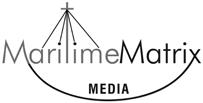
Owner of Maritime Matrix Today shall not be held liable for any consequences, in the event such claims are not honoured by







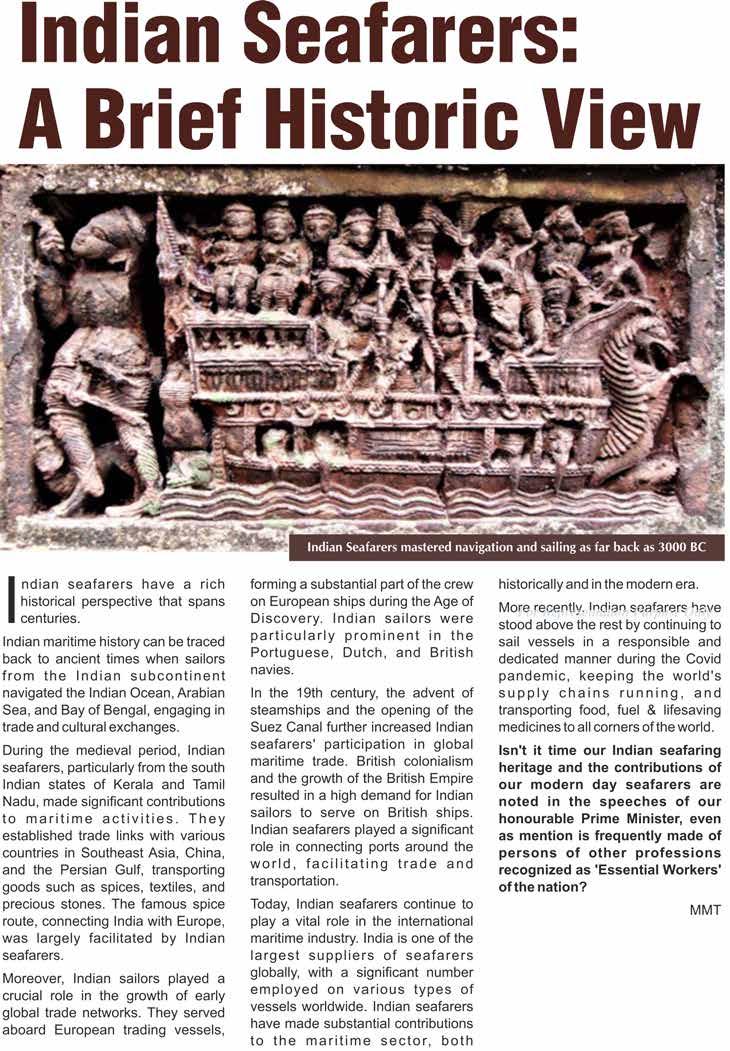
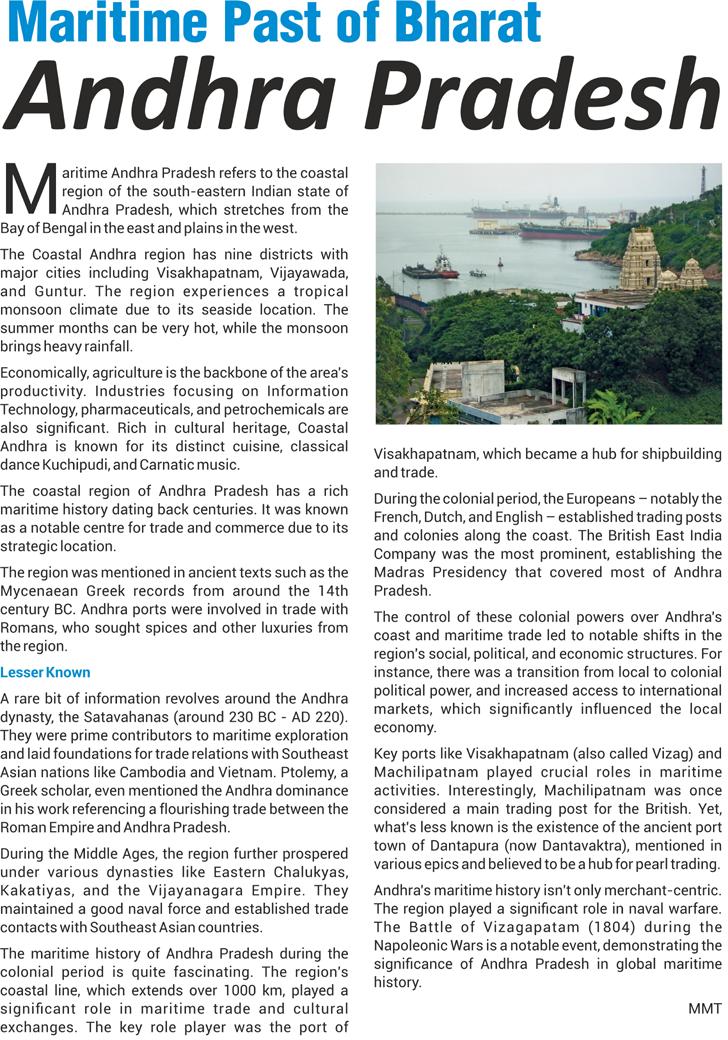
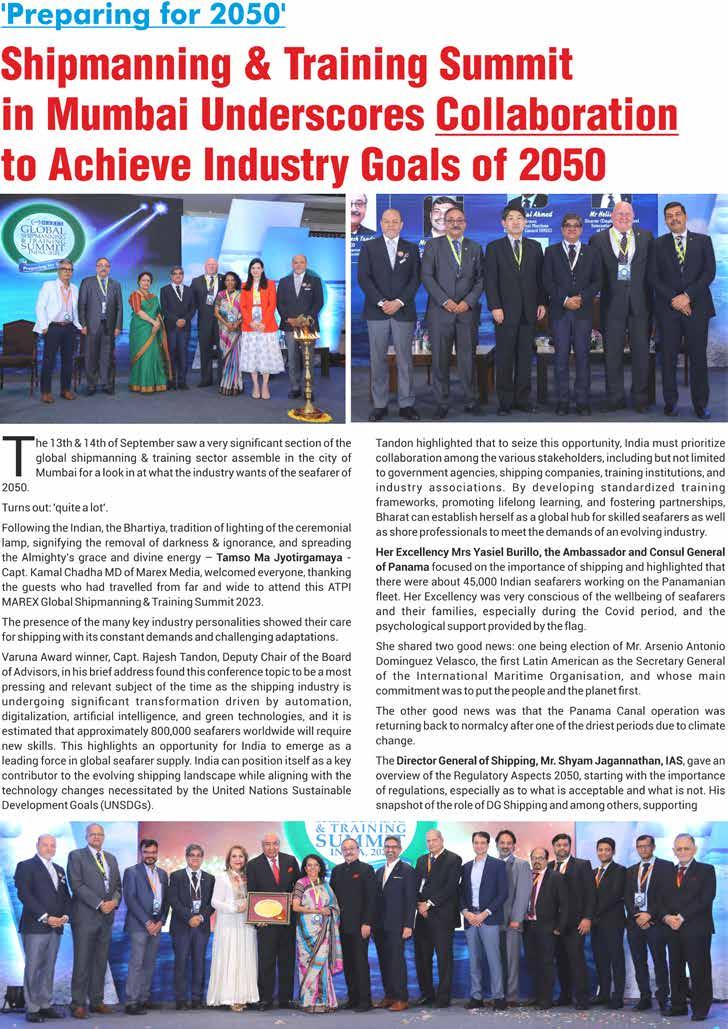
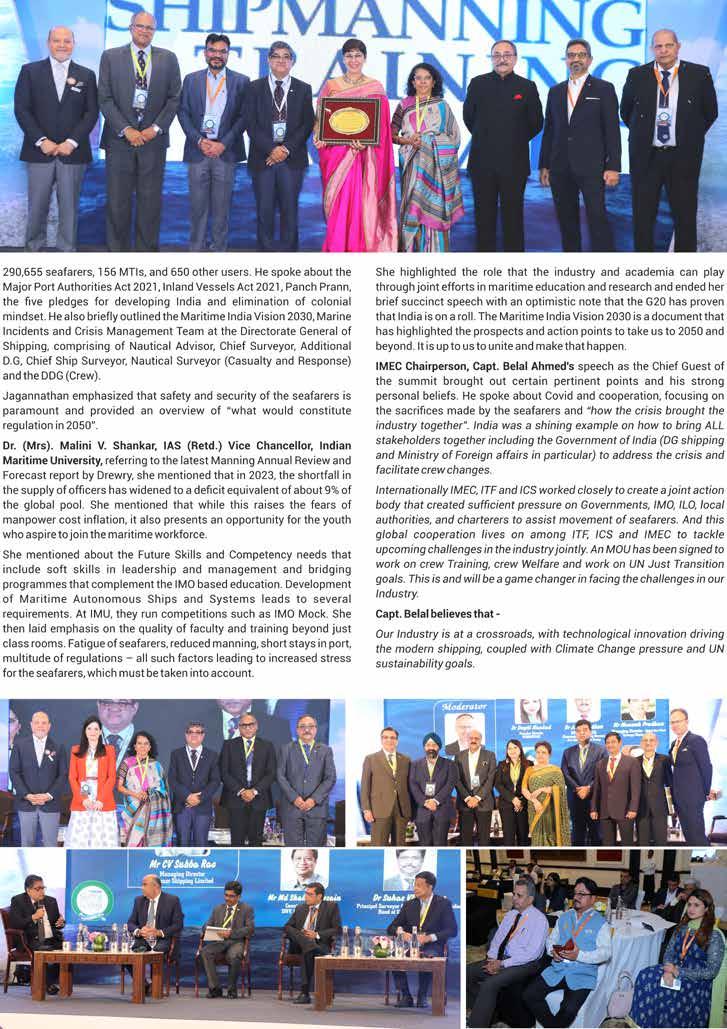

Indian Coast Guard (ICG) Pollution-Control Vessel ‘Samudra Prahari’ carried out a comprehensive Pollution Response TableTop exercise and demonstration at Khlong Toei Port in Bangkok, highlighting India’s maritime expertise and commitment towards addressing shared challenges, particularly marine pollution. The exercise was carried out the last day of its four-day visit to Thailand on September 20, 2023. It involved personnel from Thailand’s Maritime Enforcement Coordination Centre (MECC), Customs Department, Marine Department, Royal Navy, Fisheries Department and other government officials.
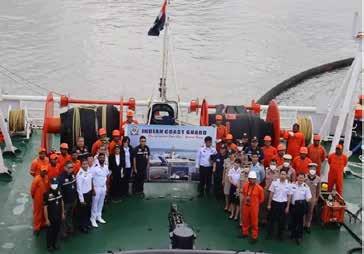
The exercise involved a scenario that devised and tested Thailand’s Maritime Pollution Response contingency plan in collaboration with the ICG. It fostered knowledge sharing and an interactive environment among the services, ensuring seamless cooperation during real-life oil pollution scenarios. The exercise demonstrated ICG’s pollution response capabilities and India’s shared commitment towards the region.
The visit of ‘Samudra Prahari’ to Bangkok under the India-ASEAN initiative marks a significant milestone in elevating ties between the ICG and Thai MECC in the maritime domain and highlighting India as a dependable maritime partner, in line with firstly Prime Minister Shri Narendra Modi’s vision of SAGAR (Security & Growth for All in the Region), and secondly the theme of India’s G20 Presidency ‘Vasudhaiva Kutumbakam – One Earth, One Family, One Future’.
Commanding Officer DIG GD Raturi also held a meeting with the Director General of Office of Policy and Plans Rear Admiral Wichnu Thupaang at Thai-MECC Headquarters. Both the leaders discussed growing relations between India and Thailand in the field of maritime safety and security.
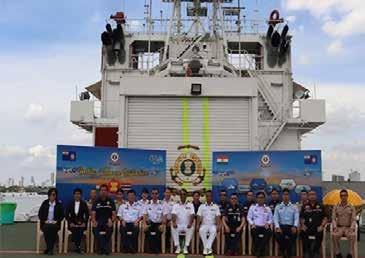
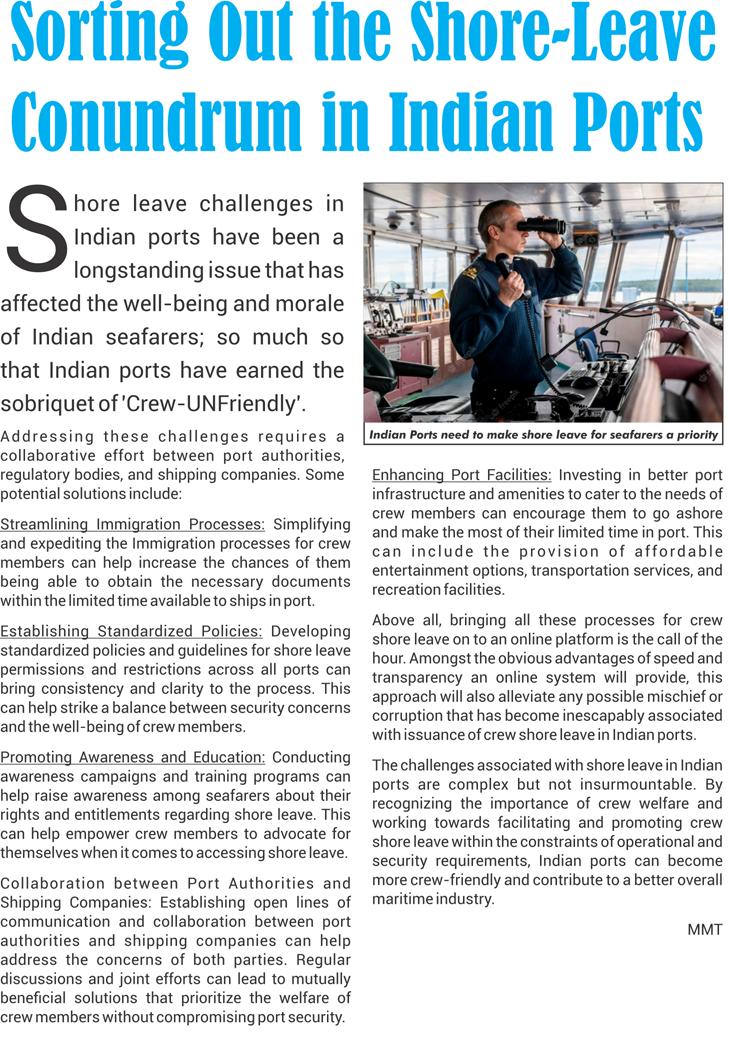
Ship recycling is a critical component of the maritime industry, facilitating the sustainable disposal of aging vessels while recovering valuable materials. In recent years, environmental concerns and safety regulations have led to the establishment of international guidelines for ship recycling, including the Inventory of Hazardous Materials (IHM). In the Indian context, ship recycling has both economic and environmental significance, and compliance with IHM requirements is crucial for maintaining a responsible and safe industry.
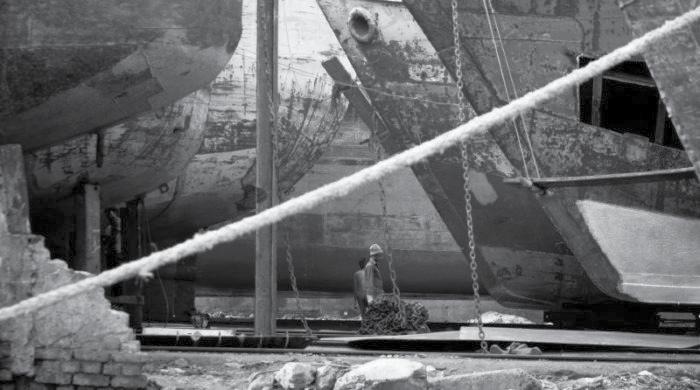
India holds a prominent position in the global
ship recycling sector, with a significant share of the world’s shipbreaking activities taking place along its shores, notably in Alang, Gujarat. This industry contributes significantly to the Indian economy, providing employment opportunities to thousands of workers and generating revenue through the sale of scrap metal and other recovered materials. However, the industry has faced criticisms regarding worker safety, environmental degradation, and inadequate compliance with international regulations.
To address these concerns, the International Maritime Organization (IMO) adopted the Hong Kong International Convention for the Safe
and Environmentally Sound Recycling of Ships in 2009. The convention aims to ensure that ships are recycled in a safe and environmentally sustainable manner, taking into account the well-being of workers and minimizing the negative impact on the environment.1
Central to the convention is the concept of the Inventory of Hazardous Materials (IHM), which requires ships to maintain a comprehensive list of hazardous materials present on board, including asbestos, lead, mercury, and other dangerous substances. The IHM serves as a critical tool for ensuring safe recycling practices, as it helps workers and authorities identify potential risks and take appropriate precautions during the dismantling process.
India recognized the importance of IHM in enhancing the safety and sustainability of ship recycling and adopted regulations in line with the Hong Kong Convention. The Indian government implemented the Recycling of Ships Act in 2019 (SRA), making IHM compliance mandatory for various commercial Indian-flagged ships and foreign-flagged ships that are to be recycled within India (SRA Section 1(3)). This step is aligned with India’s commitment to upholding international standards and improving its shipbreaking practices.2
Shipowners are required to prepare and maintain an IHM, detailing the hazardous materials present on board their vessels. This inventory must be updated regularly and shared with relevant authorities and recycling facilities when the ship reaches the end of its operational life. This information ensures that proper measures are taken to handle hazardous materials, protecting both workers and the environment.3
While India’s efforts toward IHM compliance are commendable, challenges persist. Effective implementation and enforcement remain areas of concern, as ensuring adherence across a diverse range of ship recycling facilities can be complex. Collaborative efforts involving shipowners, regulatory bodies, and labour organizations are essential to achieving consistent compliance and improving the industry’s overall safety and sustainability.4
From a lawyer’s perspective, the Inventory of Hazardous Materials (IHM) holds significant legal implications for the maritime industry. IHM compliance is not only a matter of regulatory adherence but also a means to mitigate legal risks, protect human health and the environment, and ensure responsible ship recycling practices. Here’s how lawyers view IHM:
1. Regulatory Compliance:
• Lawyers guide clients through the complex web of IHM regulations, ensuring that ships meet international and national requirements.
• They interpret regulations, advise on deadlines, and help clients navigate the legal landscape to avoid penalties and legal disputes.
2. Risk Mitigation:
• IHM compliance reduces the risk of accidents, environmental harm, and health hazards associated with hazardous materials. Lawyers help clients understand these risks and implement measures to minimize them.

3. Due Diligence in Transactions:
• Lawyers play a crucial role in ship transactions, ensuring that IHM compliance
is evaluated during due diligence processes. IHM documentation affects ship valuations, negotiations, and buyer/seller responsibilities.
4. Contractual Agreements:
• Lawyers draft contractual clauses that address IHM compliance in ship recycling contracts, charters, and agreements. These clauses outline responsibilities, liabilities, and compliance expectations.
5. Legal Liabilities:
• Non-compliance with IHM regulations can lead to legal liabilities and potential lawsuits. Lawyers help clients understand their legal obligations and work to prevent breaches that could result in legal actions.
6. Port State Control Inspections:
• Lawyers advise clients on the legal implications of port state control inspections related to IHM. They prepare clients for potential scrutiny and ensure that IHM documentation is readily available for inspection.
7. Environmental and Health Protection:
• IHM compliance aligns with broader environmental and health protection regulations. Lawyers ensure that clients uphold these standards to avoid legal and reputational risks.
8. Enforcement and Penalties:
• Lawyers counsel clients on the potential penalties for IHM non-compliance, including fines, detentions, and other enforcement actions. They help clients prepare for legal repercussions.
9. Compliance Monitoring and Documentation:
• Lawyers emphasize the importance of accurate and up-to-date IHM documentation. Proper record-keeping serves as evidence of compliance and helps prevent legal disputes.
10. Training and Awareness:
• Lawyers advise clients to educate crew members about IHM awareness and safety measures. This training minimizes the risk of legal claims stemming from health and safety issues.
11. Reputation Management:
• Lawyers understand that IHM compliance contributes to positive public image. By promoting responsible ship recycling, clients can maintain a strong reputation and minimize legal challenges.
Offense: Failing to ensure safe and environmentally sound removal and management of hazardous materials from a ship, as per the regulations.
Penalties: Section 31(5)
• Imprisonment: The offender may face imprisonment for a term that could extend up to six months.
• Fine: Alternatively, a fine may be imposed, which could extend up to five lakh rupees (500,000 rupees).
• Both: The possibility of facing both imprisonment and a fine for the offense.
In conclusion, ship recycling holds undeniable economic importance for India, but it also carries environmental and safety responsibilities. Adherence to the Inventory of Hazardous Materials (IHM) requirements, as per the Hong Kong Convention, is a vital step toward achieving safe and environmentally responsible shipbreaking practices. India’s commitment to enforcing IHM compliance reflects its dedication to meeting international standards and fostering a sustainable maritime industry. To overcome challenges, ongoing cooperation and vigilance are crucial, paving the way for a safer, greener, and more efficient ship recycling sector in India.
1. International Maritime Organization (IMO), “Hong Kong International Convention for the Safe and Environmentally Sound Recycling of Ships,” 2009.
2. Ministry of Shipping, Government of India, “The Ship Recycling Code,” 2019.
3. Srinivasan, P., “Ship Recycling Industry in India: Environmental Challenges and Prospects,” International Journal of Maritime Engineering, Vol. 160, No. A4, 2018.
4. Choudhury, S., & Choudhury, M. S., “Ship Recycling Industry in India: Present Status.

Advocate Capt Rahul Varma
Founder, Ally Maritime and Legal Services and Ship Recycling Specialist
Ms Yashika Thakran Intern, Ally Maritime and Legal Services

IMO has welcomed the signing of the UN Convention on the International Effects of Judicial Sales of Ships which took place at a ceremony in Beijing, the People’s Republic of China, on 5th September.
IMO was represented at the signing ceremony by Jan Engel de Boer, Senior Legal Officer.
The Convention was signed by 15 countries: People’s Republic of China; Burkina Faso; Comoros; El Salvador; Grenada; Honduras; Kiribati; Liberia; Sao Tome and Principe; Saudi Arabia; Senegal; Sierra Leone; Singapore; Switzerland; and Syrian Arab Republic.
The Beijing Convention on the Judicial Sale of Ships, as it is now known, was developed by the United Nations Commission on International Trade Law (UNCITRAL) to address the problem of bonafide new owners and those financing the purchase of vessels who, for instance, find themselves dealing with previous creditors laying claim to the ship as security for a loan.
This document, which was endorsed by the UN General Assembly in December of the preceding year, has the primary objective of addressing the challenges associated with the cross-border recognition of judicial sales of ships. It serves to safeguard the interests of financial institutions involved in ship financing and to facilitate the advancement of international shipping and trade.
Delegates from 34 countries and regions participated in this event, with 15 nations and regions, including China, Switzerland,
Singapore, and Saudi Arabia, being the initial signatories to the convention.
China’s Vice Minister of Commerce, Wang Shouwen, who signed the document on behalf of the country, said, “The convention has filled the gaps in relevant international rules in maritime commerce, which is conducive to reducing the transaction costs of the judicial sale of ships and will safeguard the stability of several rights, such as the ownership of ships.” He expressed optimism about the convention’s positive role in promoting ship transactions, fostering the development of the shipping industry, and enhancing global trade.
With the Convention on the International Effects of Judicial Sales of Ships having now been adopted, IMO is encouraging its Member States to ratify the agreement. Article 21 of the Convention provides that it will enter into force 180 days after the date of the deposit of the third instrument of ratification, acceptance, approval or accession.
MMT
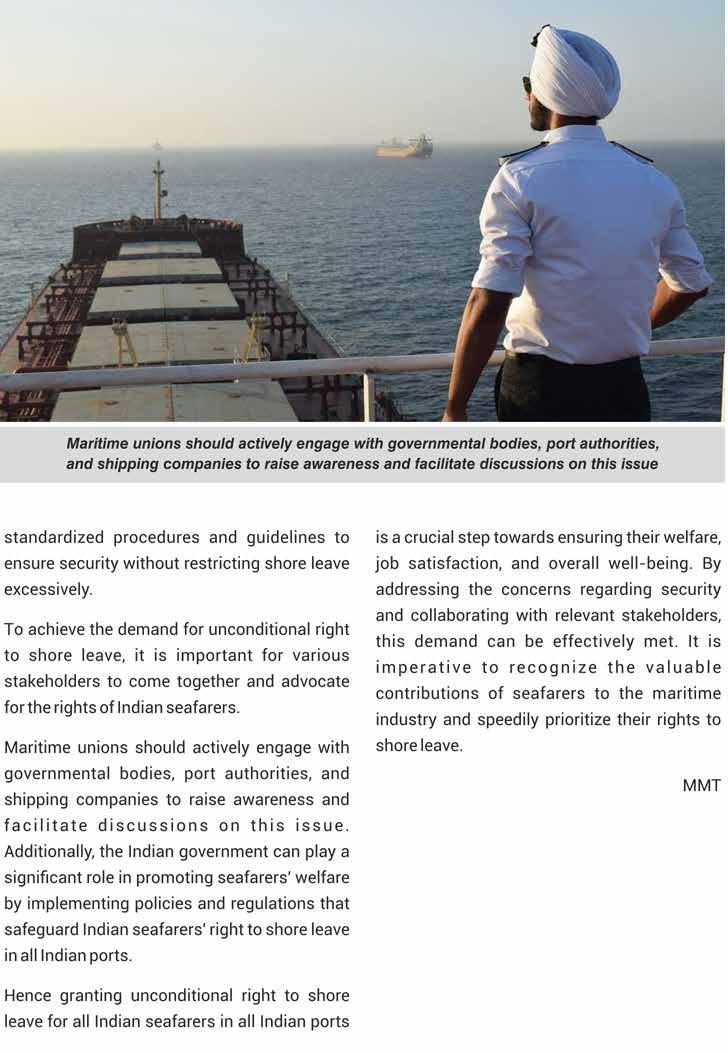

The Institute of Chartered Ship Brokers (ICS) headquartered in London is the professional body for all members of the commercial shipping industry worldwide. It was founded in 1911 and awarded a Royal Charter in 1920. It is the only internationally recognised professional body in
the commercial maritime arena and it represents Ship Brokers, Ship Managers and Agents throughout the world. It has 27 branches in key locations across the world with 4000 individual members and fellows. India has two branches viz. in Chennai and Mumbai.
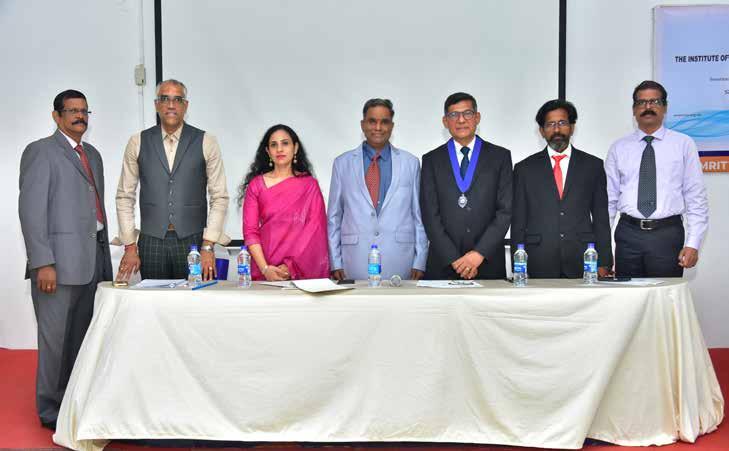
ICS East India Branch held its 28th AGM at the Seafarers Club on Saturday, 16th September. Business related to the previous year was reported with resolutions for the forthcoming year were passed. As it was election year, the new committee for the years 2023-25 were elected and declared as follows by the Returning Officer and outgoing Chairman Mr M Sayeeraman FICS:
Office Bearers:
Chairman – Capt John Prasad Menezes FICS
Vice Chairman – Ms Arathi Narayanan MICS
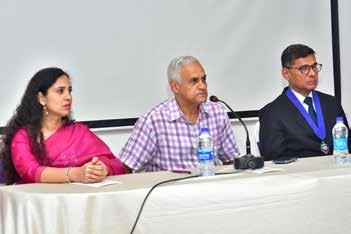
Hon Secretary – Capt Lalit Kumar FICS
Hon Treasurer – Mr Noorul Amin MICS
Executive Committee Members:
Mr M Sayeeraman FICS
Mr Ravi Tittei FICS
Capt KG Ramakrishnan FICS
Mr CG Prashanth FICS
Mr Sai Kumar FICS
Education Officer – Ms Arathi Narayanan MICS
Regional Representatives
Mr KC Shivmanohar FICS – Tuticorin
Capt Ally Dagman – Kolkata
Ms Pankhuri Poddar FICS – Delhi
Mr GVR Mohan Rao, FICS - Visakhapatnam
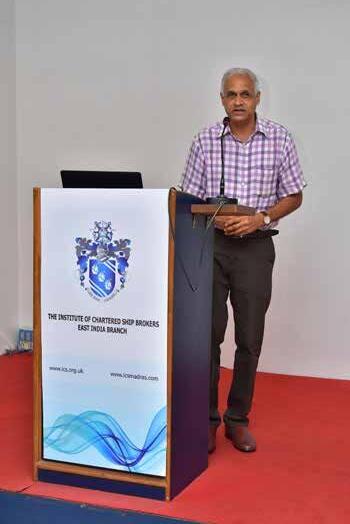
Mr Manfred Karkada, MICS – Mangalore and Bangalore
Capt RS Kishore Kumar, MICS - Kochi
Thereafter, a seminar on ‘Global Security and Maritime Security, Issues and Imperatives’ was conducted by Professor Dr Bidanda Chengappa, Member-Secretary, Institute of Contemporary Studies Bangalore (ICSB), a Security Studies think tank, which undertakes continuing education programs for the state police, intelligence services, customs services, news media in national security/ area studies.
Dr Chengappa cited issues on maritime security and around global security. He enlightened the audience on Russia Ukraine War, the China Taiwan undercurrents, the presence of US Naval forces in the Indian Ocean, the India-China chess moves. An insightful lecture and Q&A Session that followed left food for thought for everyone present.
Participants included Fellows & Members of the Institute and students from the Indian Maritime University. The event concluded with fellowship and dinner.
For more information of Professional Qualifying Examinations of ICS, log on to www.ics.org.uk.
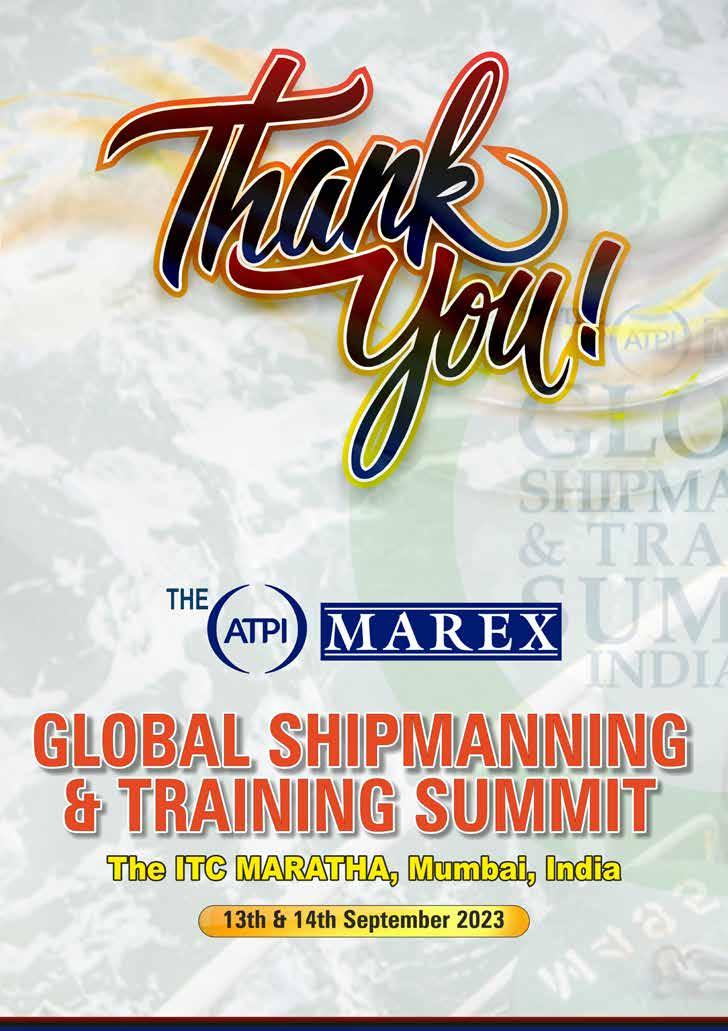
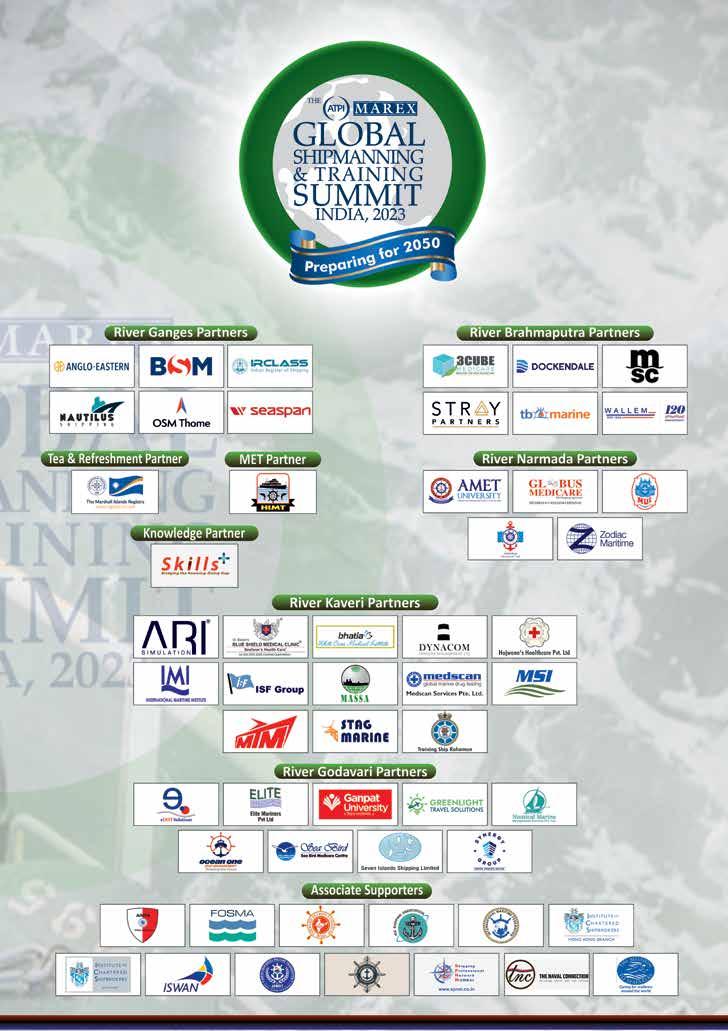

For enquiries, contact us at india@gac.com
GAC Shipping (India) Private Limited Main office
GAC House, P.B. No. 515, Subramanian Road, Willingdon Island, Cochin 682 003, India
T: +91 484 266 8372
CIN: U63090KL1983PTC003733
Horses instinctively know who to trust. So do our customers. GAC builds relationship over the years based on respect, integrity and global standards. Take it from the horse’s mouth we’re a stable for your race to business excellence in shipping, energy, logistics and P&I/H&M services.

gac.com/india
Operating from branch offices across India: Bengaluru | Chennai | Dhamra | Goa | Haldia | Indore | Jamnagar | Kakinada | Kandla | Kochi | Kolkata | Krishnapatnam | Mangalore | Mumbai | Mundra | New Delhi | Nhava Sheva | Paradip | Pipavav | Port Blair | Pune | Surat | Tuticorin | Visakhapatnam
fb.com/GACshippingindiapvtltd
instagram.com/gacshippingindia
